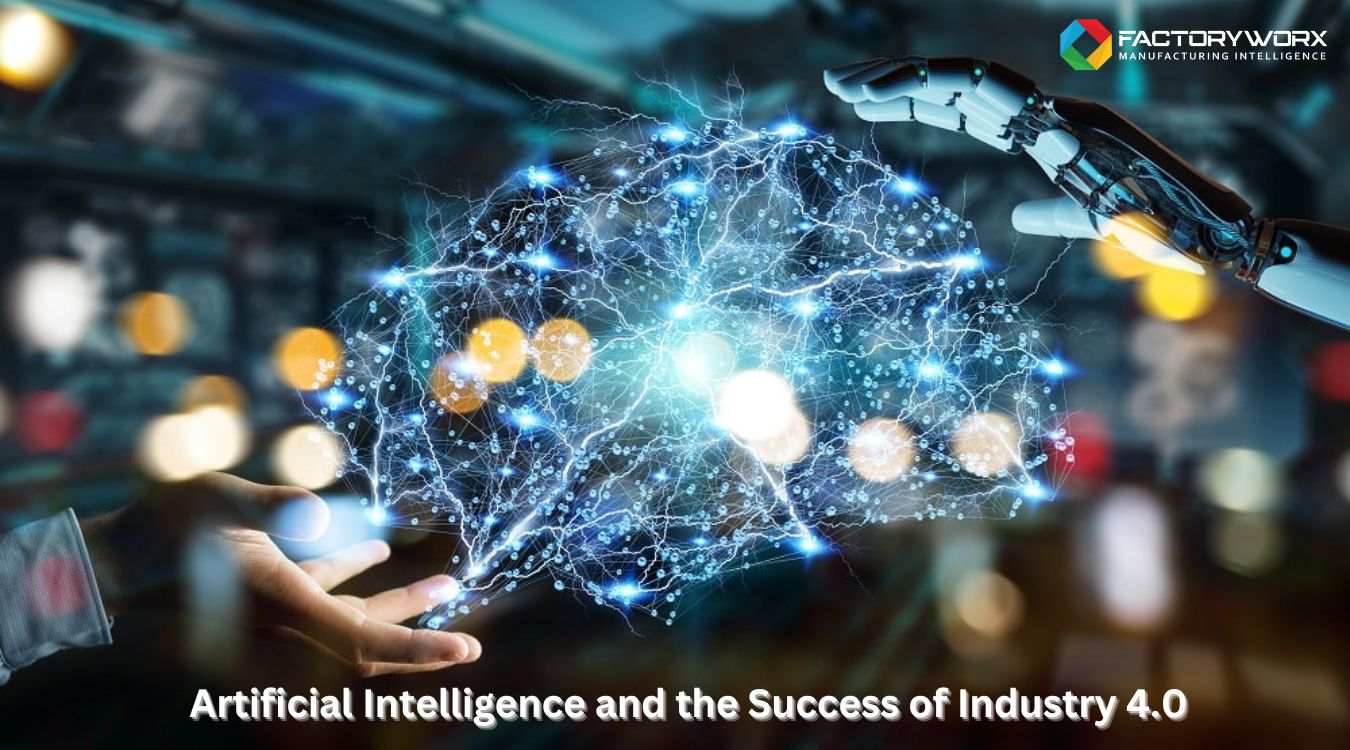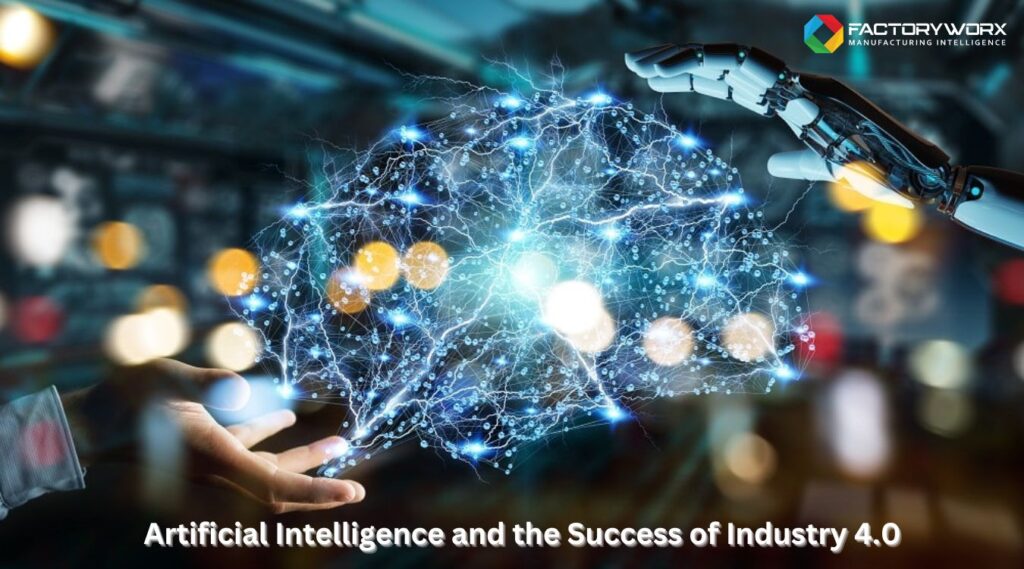
- July 11, 2023
- admin
- 0
Read Our Blog

Artificial Intelligence and the Success of Industry 4.0
AI is a rapidly evolving field, with some of its applications in Industry 4.0 indicating the pinnacle of its development. This is due to the opportunity for businesses to considerably enhance their performance, cut expenses, and improve the quality of the items they sell on the market. In this post, we'll look at the topic and the benefits that this form of technology provides.
What Exactly Is Industry 4.0?
Industry 4.0 is the fourth industrial revolution, ushering in a new era of smart manufacturing production. It is built on the utilization of digital technologies that allow people, processes, and objects to be linked together to form an integrated and intelligent system.
What Exactly Is Artificial Intelligence?
Artificial intelligence (AI) refers to a computer's ability to mimic, if not outperform, human capabilities in data analysis. It is derived from complexity theory, which analyses dynamical systems and their emergent features.
In practice, artificial intelligence allows us to design machines that can learn on their own and execute far more sophisticated analysis than a human could.
Application of Artificial Intelligence in Industry 4.0
Artificial intelligence may be applied in a variety of industries, and its usage in Industry 4.0 demonstrates that revolutions in specific areas can only occur when a technology reaches a high level of maturity. AI enables the creation of computers and robots capable of autonomously learning and performing far more sophisticated analyses than those performed by humans. This enables businesses to considerably enhance their performance by cutting costs and raising the quality of the products they offer to the market.
Safety
The application of AI in industry is also critical for improving working conditions, particularly in areas where certain tasks must be completed by people. As a result, it provides benefits in terms of safety, ensuring a better controlled working environment and a decreased chance of accidents, but only under specified conditions.
In fact, any organization that employs these new technology cannot help but consider the safety issue. This is due to the fact that industrial equipment and robots are now constructed with interoperability and man-machine collaboration in mind. In this situation, cyber security safeguards the entire corporate network against potential hacker attacks. In the sector of Industry 4.0, a team of experts in charge of monitoring the entire plant, analyzing threats, and developing countermeasures in the case of an attack is more important than ever.
First and foremost, safety standards must be integrated and capable of preventing unpleasant accidents to individuals or the manufacturing chain itself. All tools and equipment that are connected inside a certain environment must not introduce external dangers.
Scalability
Artificial intelligence (AI) is a rapidly emerging technology with the potential to transform the industry. Companies who capitalize on the benefits of the new industrial revolution will surely be able to differentiate themselves from competitors and remain competitive in the market, even as technology progresses. Most hardware and software companies develop highly scalable technologies that enable organizations to personalize every part of their facility while also upgrading old systems.
This means that if you want to add a new feature, you won't have to completely redesign the system; instead, you'll just need to install or upgrade the software or hardware module. The Planning of a Factory 4.0 Artificial intelligence is becoming increasingly important as a tool for going beyond simple automation and robotization of manufacturing, decreasing costs and improving the quality of items on the market.
Collaborative robotics (the ability of industrial robots to operate in collaboration with people) is one example of such automation. This presented a barrier in traditional applications because new technologies such as artificial intelligence were not available to solve problems through a network of sensors and software. It is vital to learn from large organizations that have previously gone this route, not just to keep employees safe, but also to reduce employee workload by enhancing their physical and mental health.
Any organization that wishes to embrace the fourth industrial revolution must first enhance productivity, but owing to this new frontier, they will also be able to carry out tasks that would otherwise be impossible.
Read More: Why an MES software is the ideal Place to Start Your Industry 4.0 Journey?
Conclusion
Artificial intelligence (AI) is a technology that has the potential to change the world, but it has yet to realize its full potential. It is vital for Industry 4.0's success to continue working on this winning combination in order to improve production processes and make them more efficient and ecologically friendly.
This new frontier of Industry 4.0 will demand a growing number of skilled individuals who understand its core dynamics and procedures and can continue to develop hardware and software while keeping security in mind.
We must continue to dream, but we must also remember that the future must be built, not just imagined.

